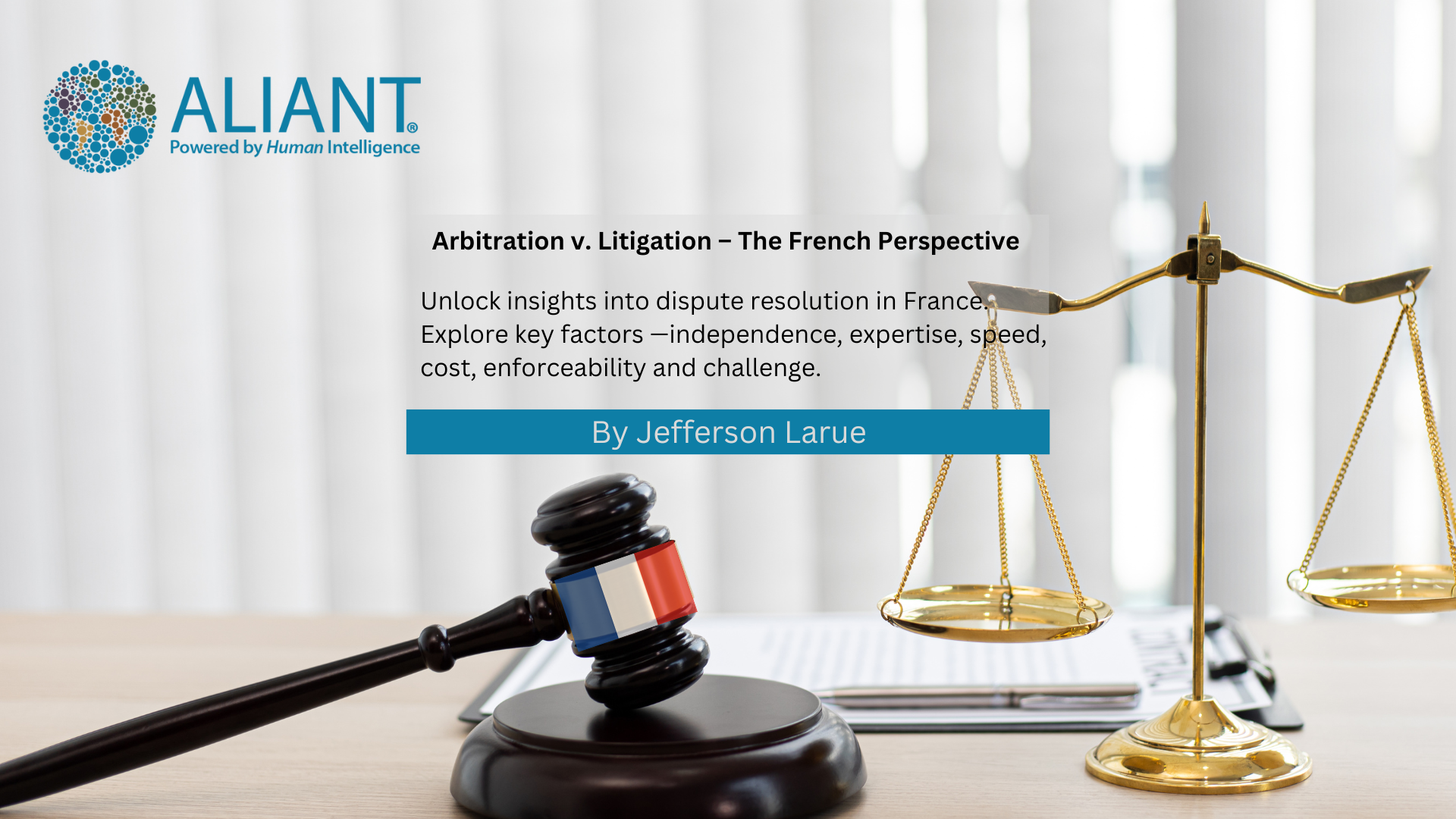In any contract, the choice between arbitration and litigation is a key negotiation point. The two parties may have different preferences and different advantages and disadvantages are present. The following are some of the key points to consider when choosing between arbitration and litigation in a foreign country.
Independence
The first issue to consider when anticipating a dispute between foreign parties is the independence of that jurisdiction relative to the parties involved. Judges are picked randomly and in some countries are reputed to lack independence, which leads to a preference for arbitration.
It is important to note that, unless otherwise agreed upon, the selection of arbitrators is left to the parties, which is supposed to ensure that at least one of the arbitrators, the one chosen, will act independently from the opposing party.
However, the advantage of arbitration in this regard must be tempered by the fact that the enforcement of the future arbitral award will require recourse to the court, in what is called the “exequatur” procedure, with the same risk of lack of independence.
Expertise
The ability for parties to choose arbitrators also means they can select experts in the specific field of their dispute, which can contribute to a better quality of analysis of the cases and thus reduce uncertainty.
In highly technical disputes, the use of experts is often necessary, just as the state court would rely on a judicial expert.
Confidentiality
Unlike judicial proceedings, arbitration hearings are generally not public, and arbitral decisions are not widely accessible to the public, ensuring a degree of confidentiality for the parties.
In practice, however, it is not uncommon for high-stakes disputes to become the subject of publicity either inadvertently (lack of discretion) or, on the contrary, deliberately calculated to exert pressure on the opponent.
Speed
Arbitration is known to be faster than state court litigation, in which procedures can last for several years, especially due to various levels of jurisdiction.
In practice, it is not uncommon for some arbitrations to extend over time almost as much as state litigation, either because it is necessary to resort to technical expertise or because the arbitration procedure itself is susceptible to being disrupted by parallel procedures (criminal complaints, for example).
Finally, it should not be forgotten that the exequatur procedure itself can take some time, especially in case of an appeal by the opposing party.
Except for relatively simple cases, the duration of arbitration is not necessarily much shorter than that of a procedure before a state court, emphasizing that state procedural law itself provides for accelerated procedures to address urgent situations.
Simplicity
Arbitration is known for its procedural simplicity, either because parties use pre-established rules or because they set their own rules, which is supposed to be a guarantee of simplicity compared to state litigation.
It should be noted, however, that the administration of evidence is more demanding in arbitration, where comprehensiveness is often required, whereas in litigation, evidence is generally limited to the strict subject matter of the dispute.
Cost
The supposed advantages of arbitration inevitably come at a cost: arbitrators are paid (usually according to a scale). Conversely, state litigation is supposed to be free because judges are civil servants paid by the state. However, in practice, the increasing use of court-ordered mediations tends to monetize state litigation. Nonetheless, the procedural costs (apart from lawyer fees) remain well below what is practiced in arbitration.
Enforceability
This is the weak point of arbitration because awards rendered by arbitrators do not, by themselves, have enforceability and must instead go through the “exequatur” procedure.
In contrast, decisions rendered by state courts are enforceable by nature, whether on a provisional or final basis, subject to being served by a bailiff.
Challenge
Arbitral awards are generally not subject to appeal, unlike first-instance decisions rendered by state courts, which means that a party cannot correct any errors made by an arbitrator.
Conclusion
It would be naive to declare one method of dispute resolution better than the other. It is, however, true that both convey a certain number of stereotypes that have been shown not to be always justified. Therefore, it is up to the practitioner, when drafting the contract, to anticipate possible disputes and determine, based on their client’s interests, which option is the best.


